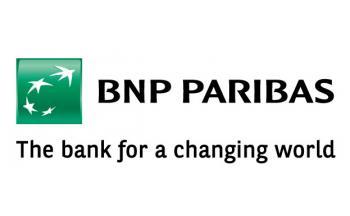Libor Live
Risk.net's Libor Live delivers the inside track on regulatory, market and product developments, explores the implications and emerging risks for market participants, and reveals the strategies, tricks and tools helping firms to tackle the transition.

Thank you to everyone who joined Libor Live 2021. With help from industry expert speakers, 700+ global delegates, and our esteemed editorial team we were able to provide the most comprehensive, objective, and insightful critical analysis on benchmark transition
Libor Live brought an expert commentary together with the leading professionals managing transition efforts at global firms to help you cope in this period of uncertainty.
Key topics covered at Libor Live 2021:
The official sector and regulatory outlook for remainder of 2021
Transitioning legacy contracts and mitigating legal risk
The role of term rates (SONIA, ESTR, SOFR)
The state of the loan market in the UK and Libor linked lending after Q1
How cross currency swaps and multi-currency syndicated loans evolve
Credit sensitive benchmarks
Synthetic Libor
Non-linear products and swaptions
Liquidity concerns for the main RFRs
The role of technology in the transition
Conduct and operational risk
Companies that attended Libor Live 2021 include:

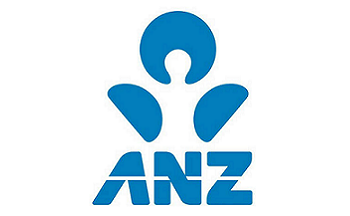
Every day brings a new set of investment challenges and opportunities. Through our unique combination of expertise, research and global reach, we work tirelessly to anticipate and advance what’s next—applying collective insights to help keep our clients at the forefront of change.
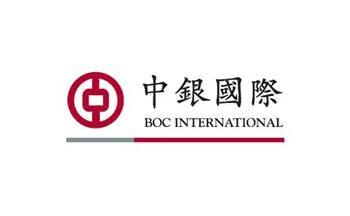

BNP Paribas is a leading bank in Europe with an international reach. It has a presence in 74 countries, with more than 192,000 employees, including more than 146,000 in Europe. The Group has key positions in its three main activities: Domestic Markets and International Financial Services and Corporate & Institutional Banking, which serves two client franchises: corporate clients and institutional investors. The Group helps all its clients to realise their projects through solutions spanning financing, investment, savings and protection insurance.
Fully integrated in the BNP Paribas Group, BNP Paribas Corporate and Institutional Banking (CIB) is a leading provider of solutions to two client franchises: corporates and institutionals, and operates across EMEA, APAC and the Americas. The bank is a global leader in Debt Capital Markets and Derivatives. It is a top European house in Equity Capital Markets and it has leading franchises in Specialised Financing. In Securities Services, it is a top five house worldwide.
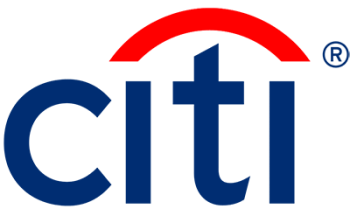


HSBC is a financial services organisation that serves more than 40 million customers, ranging from individual savers and investors to some of the world’s biggest companies and governments. Its network covers 64 countries and territories, and its expertise, capabilities, breadth and perspectives open up a world of opportunity for its customers. HSBC is listed on the London, Hong Kong, New York, Paris and Bermuda stock exchanges.
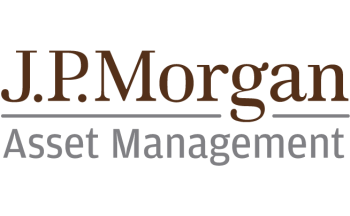





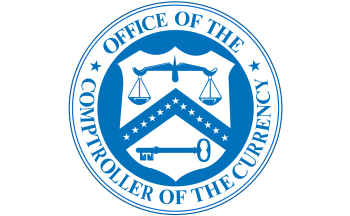

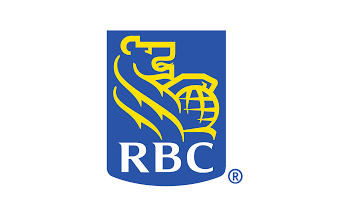
Schroders is an independent global asset management company with over 210 years of investment heritage. Asset management is our business and our goals are completely aligned with those of our clients – the creation of long-term value.
We manage $650 billion on behalf of institutional and retail investors, financial institutions and high net worth clients from around the world, invested in a broad range of asset classes across equities, fixed income, multi-asset and alternatives. We employ over 5,600 talented people worldwide operating from over 34 different countries across Europe, the Americas, Asia Middle East, and Africa.
We manage over $38bn on behalf of Official Institutions and have a dedicated team to support these institutions.
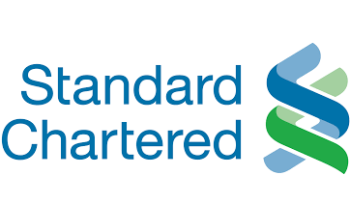



Libor Live speaker alumni
In 2020 we welcomed many industry experts from global financial institutions to our Risk.net Libor events including:

Tom Wipf
Vice chairman of institutional securities.
Morgan Stanley
Tom is responsible for Morgan Stanley’s transition efforts to alternative reference rates to
replace LIBOR through the firm’s Global LIBOR Transition Steering Committee. This
group, spanning ISG, Wealth Management and Investment Management, will ensure that
all businesses and infrastructure organizations have a consistent set of Firm-level
guidelines, their own transition plans and accountability for transition readiness before
year-end 2021.
Tom most recently led the firm’s Global Business Continuity Management Organization,
which is responsible for strategic planning and risk management for potential cyber and
physical disruptions. He is a member of the firm’s Securities Operating Committee, Risk
Management Committee and Asset/ Liability Management Committee.
Prior to being named Vice Chairman, Tom was the Global Head of the Bank Resource
Management Division where he was responsible for the firm's secured funding, securities
lending, global hedging and collateral management activities.
Beginning his career in the industry in 1977, Tom joined Morgan Stanley in 1986 and has
been engaged in the Firm’s funding, collateral and hedging activities throughout his
career at the firm. Based in New York, Tom has also completed multi-year assignments
in Morgan Stanley’s London and Tokyo offices.
In April, 2019, Tom was named Chair of the Alternative Reference Rates Committee
(ARRC) by the Federal Reserve Board. The ARRC is a group of private-market
participants convened to help ensure a successful transition from USD LIBOR to a more
robust reference rate.
Tom was appointed Chair of the US Commodity Futures Trading Commission’s Market
Risk Advisory Committee (MRAC) Interest Rate Benchmark Reform Subcommittee in
October, 2018.
Tom served as Chair of the Treasury Market Practices Group (TMPG) until May 2019.
The TMPG is sponsored by the New York Federal Reserve and is an industry group
committed to supporting the integrity and efficiency of the U.S. Treasury and Agency
Mortgage Securities Markets.
Tom serves on the board of directors of International Swaps and Derivatives Association,
Inc. (ISDA). Tom was appointed to the Alternative Reference Rate Committee,
sponsored by the Board of Governors of the Federal Reserve in 2014. Tom previously
served on the Financial Research Advisory Committee to the US Treasury Office of
Financial Research from 2012 to 2017.
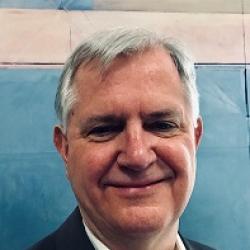
David Bowman
Senior associate director
Board of governors of the federal reserve system
David Bowman is a Senior Advisor at the Board of Governors of the Federal Reserve System. Mr. Bowman serves as the Board’s senior staff liaison to the Alternative Reference Rates Committee, a group of private sector participants convened by the Board of Governors and Federal Reserve Bank of New York to help identify alternatives to LIBOR and to develop strategies to promote their use. Mr. Bowman also serves as the Board’s representative to the FSB’s Official Sector Steering Group (OSSG) and has previously served as a senior staff member supporting Chairman Jerome Powell in his capacity as co-chair of the OSSG and helped to coordinate the OSSG’s work summarized in the 2014 FSB report, Reforming Major Interest Rate Benchmarks, as well as its subsequent reports. Mr. Bowman additionally serves as the Board of Governor’s representative as an observer to the IBA LIBOR Oversight Committee.
Mr. Bowman has a Ph.D. in Economics from the University of California at Berkeley.

Edwin Schooling Latter
Director of markets and wholesale policy
Financial Conduct Authority
Edwin Schooling Latter is Director of Markets and Wholesale Policy at the Financial Conduct Authority where his responsibilities encompass policy in relation to primary and secondary markets, trading venues, trading conduct, benchmarks, asset management and pensions. From 2011-2014 Edwin was head of the Financial Market Infrastructure
Directorate at the Bank of England, responsible for supervision of CCPs, securities settlement systems, and systemically important payment systems, and for the Bank’s input to policy making on central clearing and OTC derivatives reforms. Prior to appointment as head of MID, Edwin worked in the Bank’s Financial Stability area for several years, including as secretary to the Bank’s Financial Stability Committee. Edwin was also previously Managing Director of UK payment system, LINK Interchange Network Ltd.

Meredith Coffey
EVP, president of research & public policy
LSTA
Meredith Coffey is Executive Vice President of the Loan Syndications and Trading Association (LSTA), and runs Research Department and co-heads the LSTA’s regulatory and CLO efforts, which help facilitate continued availability of credit and the efficiency of the loan market. In addition, Ms. Coffey heads efforts to analyze current and anticipated loan market developments, helping the LSTA build strategy and improve market efficiency, and providing commentary through weekly newsletters, periodic conferences and webcasts. Ms. Coffey and the analyst team also engage market participants, press and regulators on issues and developments in the global loan market. Ms. Coffey has published analysis on the syndicated loan market in numerous books and periodicals, presents frequently, and has testified several times before Congress on issues pertaining to theloan and CLO markets. Prior to joining the LSTA, Ms. Coffey was Senior Vice President and Director of Analysis focusing on the loan and adjacent markets for Thomson Reuters LPC, working in and running loan research for 15 years. Ms. Coffey has a B.A. in Economics from Swarthmore College and a graduate degree in Economics from New York University.

Andrew Hauser
Executive director of markets
Bank of England
Andrew Hauser is the Executive Director for Markets. He is responsible for all aspects of the design and execution of the Bank of England’s operations in financial markets, which includes managing the Bank’s own balance sheet and overseeing the UK’s official foreign exchange reserves on behalf of HM Treasury. In addition to these operational duties, he is responsible for market intelligence gathering and providing the Bank’s Monetary Policy and Financial Policy Committees with analysis of global financial markets.
Andrew joined the Bank in 1992 and has worked in senior roles in most major functions. Most recently, he was Executive Director for Banking, Payments and Financial Resilience. He oversaw the development of the Bank’s own financial risk framework, the operation and strategic development of payment systems, and wholesale and retail banking operations. He was also the executive sponsor for the Bank’s work on FinTech, including setting up of the FinTech Hub. Prior to this, he led the joint Bank/HMT/FCA Fair and Effective Markets Review.
Andrew was Private Secretary to the Governor in 2009-11. He also represented the United Kingdom as a member of the Executive Board of the International Monetary Fund in Washington DC in 2004-6, had oversight of the Bank’s Inflation Report and regional agency network, and served on the secretariat to the Monetary and Financial Policy Committees.
Andrew has an MSc in Economics from the London School of Economics and an MA in Politics, Philosophy and Economics from Oxford University. In addition to his role at the Bank of England, he was a Non‐Executive Director and Chair of the Audit and Risk Committee for NHS Resolution between 2013 and 2017.
Contact us today!

Sponsorship enquiries
Antony Chambers
Publisher, Risk.net/FX Markets/WatersTechnology

Speaking and agenda enquiries
Alice Marsh
Senior conference producer



